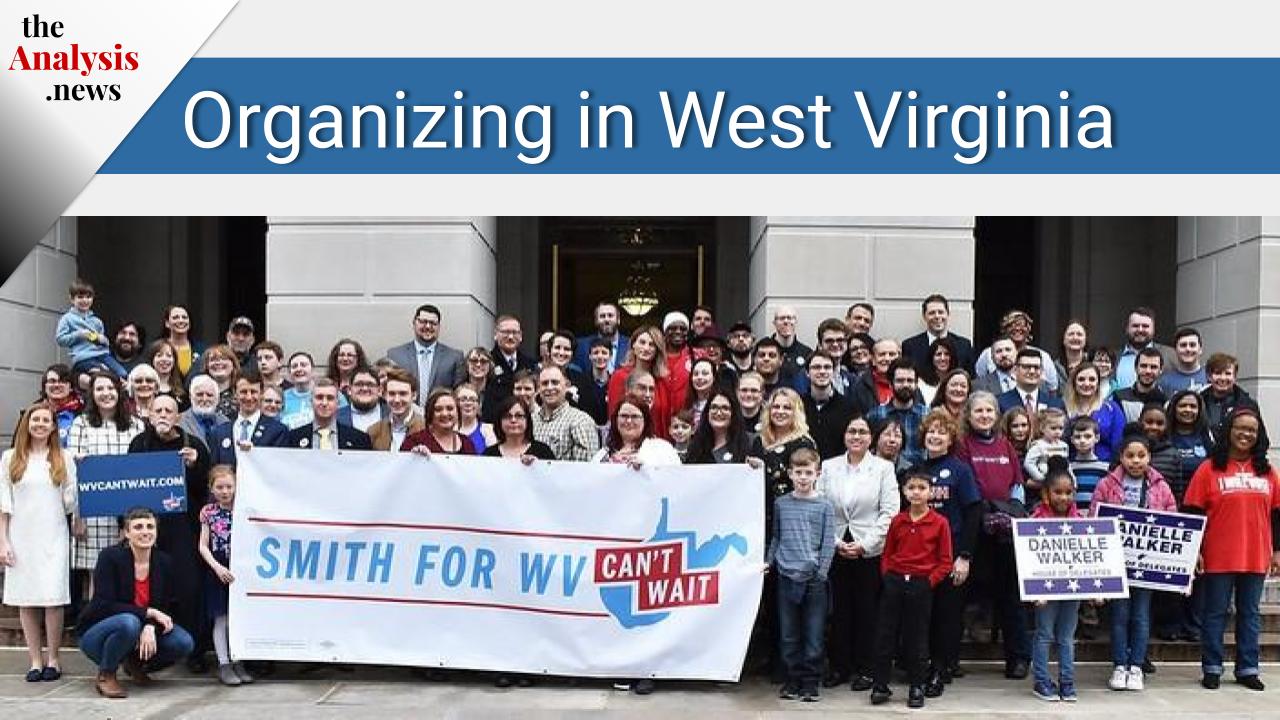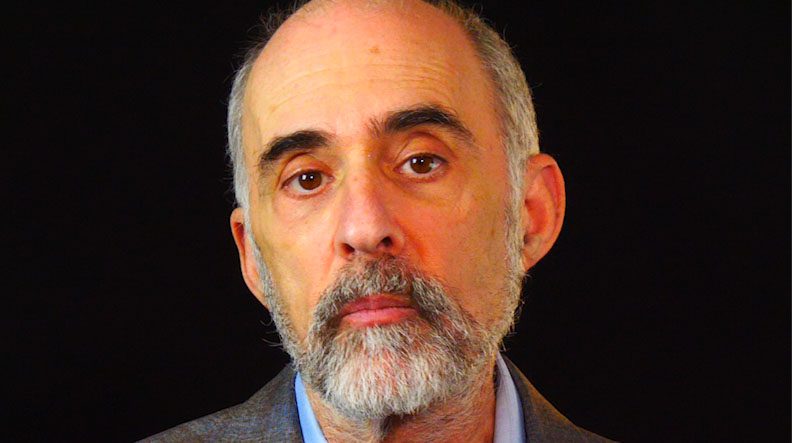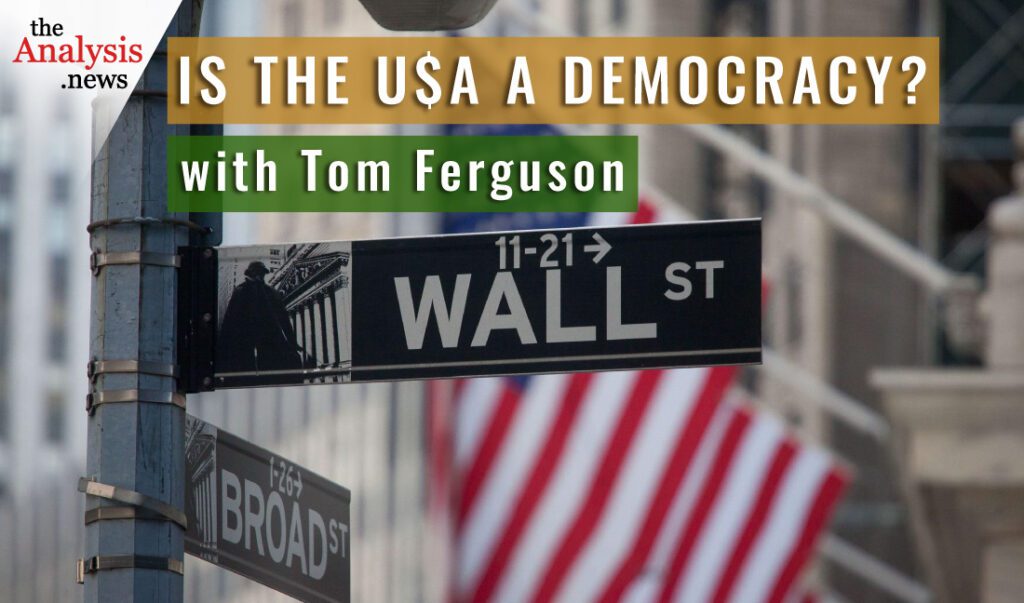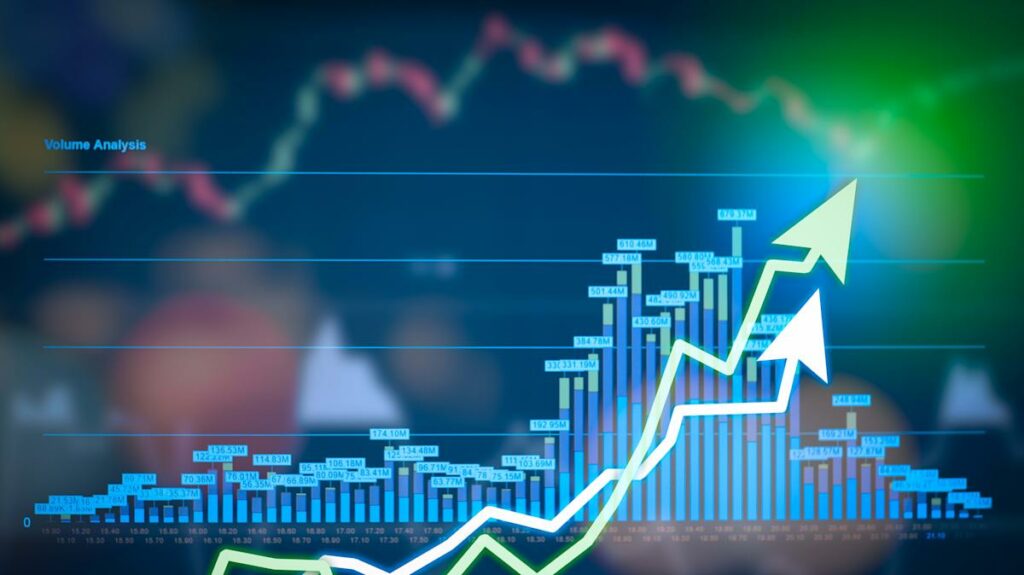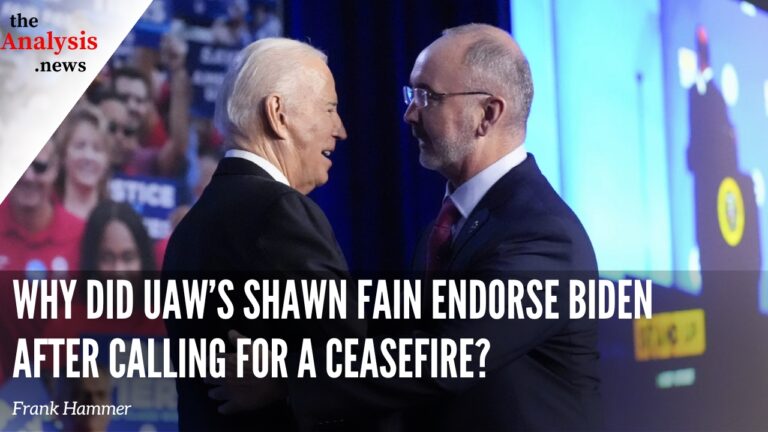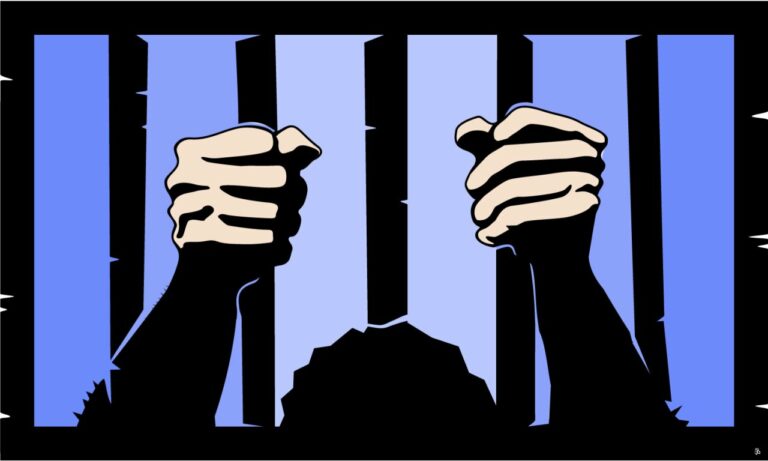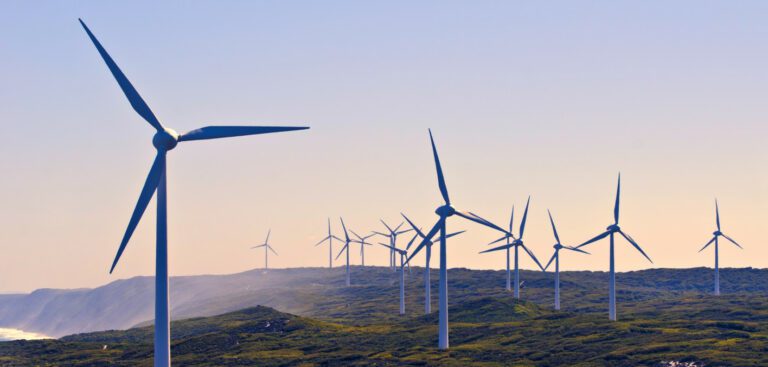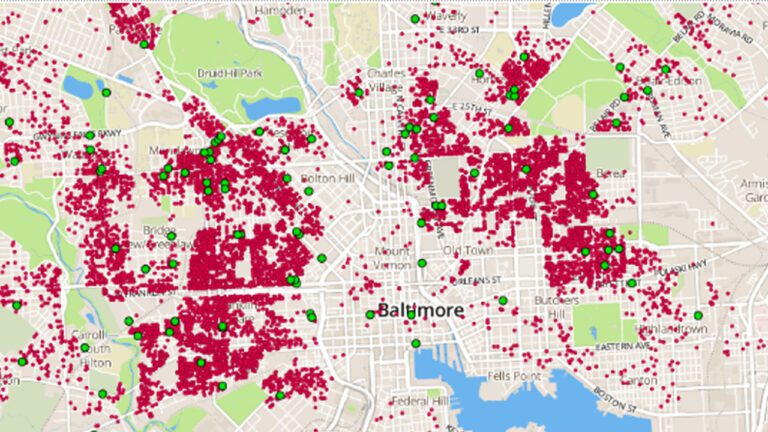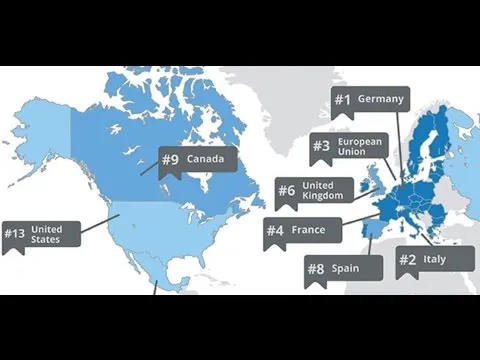“West Virginia Can’t Wait” is a movement to win a government where the people who work the hardest and bear the most are also the ones who write the laws. Katey Lauer joins Paul Jay on theAnalysis.news.
Paul Jay
Hi, I’m Paul Jay. Welcome to theAnalysis.news. In a few seconds, we’ll be back with an organizer from West Virginia. Please don’t forget there’s a donate button and subscribe button. The YouTube subscribers are very interesting. Even though we’re doing thousands of views, our subscriber numbers never go up, which I believe is part of the YouTube suppression of our channel. So if you’re watching and you haven’t subscribed on YouTube, you don’t have to go to YouTube, but if you’re watching on YouTube, hit the subscribe button and let’s see if they actually will move. As some other progressive sites have found or channels on YouTube, there seems to be some monkey business going on with subscriber numbers. Anyway, you’d be back in just a few seconds.
As I’ve been promising, I’m going to be talking to organizers this year, people working at workplaces, schools, and communities fighting to make progressive change. For the last three and a half years, organizers in West Virginia have been building a movement to urge ordinary people to run for political office and win.
On their website, this is how they describe their work.
Excerpt
“West Virginia Can’t Wait, is a movement to win a people’s government in the Mountain State. For too long, the wealthy, Good Ol’ Boys Club of both parties has rigged the system against us. We know our fight isn’t Left versus Right; it’s up versus down. Three years in, we’ve recruited and trained 107 candidates who refuse to take corporate cash and who answer to the working people of our State. We’re out to win a government where the people who work the hardest and bear the most are also the ones who write the laws.”
“In three years’ time, West Virginia Can’t Wait, has built the largest electoral organizing infrastructure our State has seen in decades.”
Paul Jay
Again, I’m quoting from the website of West Virginia Can’t Wait.
Excerpt
“With county teams in all but one of our 55 counties, 39 constituency groups representing seniors, veterans, and so on, and 107 candidates running under the West Virginia Can’t Wait banner, our movement, three years in, is poised to take on the wealthy Good Ol’ Boys Club and win.”
Paul Jay
Good Ol’ Boys, I guess we’re talking about Joe’s [Biden] friends.
Now joining us is Katey Lauer. She’s the co-executive director of West Virginia Can’t Wait. Thanks for joining us, Katey.
Katey Lauer
Thanks for having me, Paul. It’s great to be here.
Paul Jay
So before we get into what’s going on in West Virginia, you’re not originally from West Virginia. So how and why did you wind up in West Virginia?
Katey Lauer
Great question. I am from about an hour north of the West Virginia line. I grew up in the Pittsburgh area, and I found my way here almost 15 years ago. I grew up in a family where service and community involvement were really valued, and so I spent most of the weekends of my childhood attending one of my brother’s Boy Scout meetings, helping in a community garden project, or helping paint the house of a neighbor. My grandma was adamant that we shovelled all of the driveways in our neighbourhood growing up, that sort of thing.
When I got to college, I got to go to school, and I got to go to a little school in Ohio. I fell in with a handful of folks that were from central Appalachia that taught me a lot about the fact that some of the things that I was doing, sort of service work around when I was growing up, was not just sort of facts of the world. It wasn’t just a fact of the world that some people just happened to be poor, or it wasn’t just a fact of the world that some people didn’t have enough money to keep up their houses.
In fact, there were systemic failures. There was a thing going on behind the scenes that set up our society that way. They especially taught me about the ways that were happening in places like West Virginia. Through those relationships and through the things I learned over that handful of years of my life, I ended up moving here initially to an itty bitty little town called Arnett in the Southern coalfields and got involved in fights over safe drinking water access and mountaintop removal strip mining.
Paul Jay
For almost 11-12 years before West Virginia Can’t Wait, you were organizing in those areas as a paid staff person? Were you working and organizing?
Katey Lauer
It was a real mix. So my first volunteer job was with a youth-led Appalachian organization called Mountain Justice. From my volunteering with that group, I got my first paid organizer job working for an Appalachian coalition called the Alliance for Appalachia, that was made up of 15 member groups all throughout the coalfields. Outside of West Virginia, too, that included Eastern Kentucky and Western Virginia and part of East Tennessee. Then I just stayed involved in that kind of environmental and justice work for a number of years. So that included things like doing flood response work. West Virginia, in part because of the logging and strip mining industries and in part because of climate change, has fairly frequent 100-year floods.
It also meant helping to lead some of the organizing around things like the water crisis we had here in 2014, where 300,000 people lost safe drinking water access for a number of weeks. So that community was a big part of how I was connected in the State through people that were doing work to make sure that all of us had a safe place to live.
Paul Jay
So West Virginia Can’t Wait is really targeted at getting people to run for office, helping them, and winning based on a mostly common platform. You’re running in a State, which has, at least for years until relatively recently, been run by the Democratic Party machine. It’s still very strong; Joe Manchin’s machine essentially keeps him in office. Although the State is now increasingly voting Republican, and I believe the State went electorally, went for Trump in the last election. Although during the Democratic primary, what was it? Every single district went for Bernie Sanders in the Democratic primary. So it’s an interesting mix of politics there.
Katey Lauer
Yeah, that’s exactly right. I’ll say maybe to share one more piece of my personal story, Paul, that I think there is a common bridge and part of a unifying thread that we see through our work. One of the reasons I got involved in electoral work, which I’ve been pretty hands-off about since I first moved to West Virginia, was that in the wake of the chemical spill, there were some very simple changes that the water company, West Virginia American Water, could have made that could have been mandated by our Public Service Commission to make it so that a chemical spill like that would have never happened again.
We did all of the things that I know to do as an organizer. We ran, I think, what was a really effective issue-based campaign, and we lost. The reason we lost is because the governor, our corporate governor, appointed corporate appointees to occupy the positions that are on the Public Service Commission board. I think it was sort of the last straw for me in realizing our government is so rigged. It is so much under corporate control that even in this most extreme, acute situation that impacts a significant portion of our State— we’re a tiny State. Three hundred thousand people is a lot of folks for West Virginia. We have fewer than 2 million people here. Even then, under those very drastic circumstances, we couldn’t even get the most basic protections.
Part of the foundation of West Virginia Can’t Wait, and while you’ll hear things on our website, for example, that say we’re out to contest for power against the corporate leadership of both parties, is that, in many ways, for folks who have lived in the State, our lives are not that much different, whether there are corporate Democrats or corporate Republicans that are in power. A lot of the things that are day-to-day issues that we struggle with are sort of agnostic along party lines in that way.
So a great example is that a lot of people’s lives got worse in the State under about 80 years of corporate Democratic Party power. So that is a common and unifying experience. I think it’s part of why we see a lot of popularity among outsider candidates, especially on the national level, like Bernie or Trump, that are seen as they don’t represent the status quo. I think there’s a good reason for people to have that preference. The status quo hasn’t served us very well.
Paul Jay
We’ll talk more about the people that you’re working with and organizing and coming forward to run. What’s the basic methodology of organizing? What’s your plan?
Katey Lauer
So there are a few things that we realized after the 2020 cycle, which was our first big entree into this world. One is that there was this incredible amount of energy and activity around our gubernatorial campaign. It was really the thing that we were able to build a lot of our other movement architecture in conjunction with. So running a gubernatorial campaign meant that we were not only contesting for the highest office in the State and offering solutions that were the size of the problem our State is facing right now, but it also is a vehicle for us to organize people into other roles. So that was the year that we recruited and ran 107 candidates. It was the year that we built the constituency teams and the county teams.
One thing we learned in that process is that telling the truth about what it’s going to take to win governing power is part of what gets people on board. To tell the truth about what it’s going to take to win, what kind of risk we need people to take, and what kind of roles we need people to occupy. The other thing I’ll say we learned that year is that we just have an incredible amount of bench building to do, and we got a good start that year. Between our first cycle and this next sort of odd off-cycle elections, we now have 20 people that are in office, that are governing, that came through with West Virginia Can’t Wait.
Paul Jay
What levels are they in office?
Katey Lauer
We have four folks that are in the State House right now, and the vast majority of those folks are city councillors. We have a couple of school board members as well. I think it’s really trained our eye toward, even more so than I think we began with, toward doing that kind of bench-building work that’s going to add up over time. Our corporate opponents have been accumulating power for decades collectively, and we think it’s going to take that kind of collective generational effort to make a dent in [crosstalk 00:13:38].
Paul Jay
Places where you’ve elected these 20 candidates, have they been running against people who are in areas/districts that would have been Democrat or Republican? Who are you beating?
Katey Lauer
It’s across the board, and it’s also, I will say, across the board, too, in the people who run with us. So the vast majority of our candidates are Democrats. We also have people that run as independents, as Republicans and as Mountain Party folks. That’s the equivalent of the Green Party in West Virginia, that all run on our ticket. The way that we select them is they have to sign onto a pledge that is that sort of foundational, no corporate cash pledge. There are some other things included in it, as well as on to our platform.
Paul Jay
Well, what are the key points of the platform? Because if someone comes from a Republican angle or a Democrat angle, I mean, I love the fact it doesn’t get locked into the partisan parties. On the other hand, what’s the policy that people are agreeing to run on?
Katey Lauer
So there’s a wide range. I’ll tell you a little bit about how we build our platform, Paul. So building the platform was a thing that came out of our gubernatorial campaign. The way that we created it was through this program we ran called the Summer of 10,000 Conversations. We organized our field teams to go out and to have and record 100 conversations with their team, 100 conversations, each with their team to log into this big one-on-one conversation log, and our gubernatorial candidate and other staff were doing those conversations at the same time. The platform we wrote was built out of those conversations. In many ways, teachers in our State wrote our educators part of our platform. Miners wrote this part of our platform called the Miners Bill of Rights. There are a number of things on the platform about land ownership. So people that have that live adjacent to landholding companies helped write that part of the platform. It was really a ground-up drafting process, which was pretty cumbersome, as you might imagine if you can think about processing all that input and then was ratified through a series of delegates’ meetings.
One of the things that I think makes it possible for people from different party affiliations to sign onto it is that there is a legitimacy to the way that it got built with a lot of input from a lot of people. I think the other thing is that we also purposely position our organization that way. One of the things we teach new people that come onto our work is that we don’t pick fights that are Left versus Right. We pick fights that are up versus down. Our interest is in having people that are in office that are not beholden to corporate interests. Most fundamentally, that’s our fundamental belief about what’s corruption.
Paul Jay
But not Left versus Right, up and down. But a lot of times, up and down translates to Left versus Right.
Katey Lauer
I don’t know, Paul, we might disagree about that.
Paul Jay
We’ll take climate. You have a lot on the Trump side, and I would say the majority of right-wing politicians and such, not all, but certainly, Trump circles are out-and-out climate deniers. I don’t know whether that’s up, down, Left, Right. If you look at what the solutions on climate are going to be, it involves the government regulating coal slowly and transitioning to sustainable energy. I don’t know. I’m not saying there aren’t some— how is that not also a Left-Right issue?
Katey Lauer
Sure, it’s a good question. I think the history of this place is one example that matters. As the coal industry and coal executives were rising to power in West Virginia, the party that they did that under was the Democratic Party. In many ways, Democrats were the people who were lining their pockets with the help of coal executives because they were doing favors for them. I think if we look at the party under which the most resource extraction and wealth extraction and under which most of the union-busting happened in this State, it was under the Democratic Party’s leadership.
Paul Jay
Okay, I see where the disconnect is here. I know there are people that call the Democrats Left. This is where the disconnect in the conversation is because I never consider the corporate Democrats as being on the Left, but I know a lot of people do.
Katey Lauer
I will say, yes, I think that might be helpful. That’s a helpful distinction. I think I respond that way because I think in the common vernacular of the way that people talk about Left and Right in politics and in our State is in a Democrat and Republican framework. So maybe this is the part where I think we probably have alignment, Paul, which is we sense that our State got much worse under corporate Democratic leadership and continues to do so. The needs of working West Virginians continue to get undermined, and in that way, we don’t organizationally have allegiance to the Democratic Party. So that’s the thing that we want to [crosstalk 00:19:25].
Paul Jay
Oh, that I fully understand. As I said, I’d never call them Left, but whatever, we don’t need to argue about the semantics of that. Okay, I was going to wait to talk about this, but I know everybody watching wants to talk about it. So we’ll talk about it, and then we’ll get on more about what the real work is. Obviously, what the hell is going on with this Joe Manchin story? Even the Miners Union, which, if I understand it correctly in the past, has supported Manchin, came out and demanded Manchin actually support this Biden administration Build Back Better Bill. Saying that, there are some very concrete things that would help West Virginia miners if the bill was passed. It does not seem to have shaken Manchin’s resolve at all. Give us a picture of what is that machine around Joe Manchin that makes them more or less, it seems immune even to the Miners Union.
Katey Lauer
I love this question, Paul, because I think the thing that you’re underscoring is so important in terms of the way we think about how we relate to Manchin, which is understanding what is the apparatus behind him and what is his history in the State. So I think a couple of important things to know about him are that he comes from a political family. He’s had cousins and other relatives that have been involved in political machines before he came along. He has slowly ascended over his career through the ranks of being over the House and then the Senate and then Governor and then running for Senate. He’s a politician by vocation. In the process of that, he consolidated power around him.
Examples of that are his cousin. He is the current director of the State party or the Head of the State party. He has shared campaign managers and other sorts of key staffers with our current sitting Governor, Jim Justice, and in many ways, it’s the reason that Jim Justice was elected because the Democratic machine got Jim Justice into office and picked him as their guy. It’s pretty hard to get elected for a higher office in the State, and in some cases, for state-level offices and by that, I mean State House or State Senate offices, without the blessing of that machine.
Manchin has even gone so far as to undermine the success of other Democrats when they don’t step in line. So the clearest example of that is Charlotte Pritt, who is a progressive who ran against Joe Manchin for governor and successfully beat him in the primary. Then Manchin went on to raise funds from Democrats to undermine her so that the Republican opponent would win and so he would continue to maintain power in the party.
So I think that story, and I think watching the ways in which Manchin has consolidated power over time, it’s hard to see that he is serving any other entity besides his own interests. A lot of the maneuvers he makes are about a consolidation of power. Therefore, he controls the party mechanisms that he needs to control in order to maintain his position. Because most folks are afraid of him and afraid of his influence, it’s rare that people will challenge him upright. He sort of made himself into this excellent position of being able to remove challenges from below because he controls so much. I think it’s why he is seemingly impenetrable because I think that he actually is. The party here won’t challenge him. He doesn’t get anything from appeasing the national party apparatus. He is in much more contact with his corporate donors than he is with any residents of the State.
Paul Jay
Wasn’t there a phone call transcript?
Katey Lauer
Yes. Yes, there is a transcript.
Paul Jay
Tell us about what that phone call was.
Katey Lauer
Sure
Paul Jay
Why wasn’t that a scandal in West Virginia? That phone call essentially revealed who he works for.
Katey Lauer
Right, I think you’re referencing his weekly call with Exxon executives that was recorded and leaked that he had regularly.
Paul Jay
Exxon and maybe some other donors, too, I thought.
Katey Lauer
Yeah, I think that’s right. I know that Exxon was there. There may have been other donors as well that I think are in that community.
Paul Jay
If I remember correctly, one of the points in the conversation is one of the donors said to him, don’t ever compromise on the filibuster, like a very direct marching order on it.
Katey Lauer
Sure. Right, exactly. I think it’s really important for us to see it because that’s where Manchin gets it. That’s his team. That’s who he’s making choices alongside, and we have not amassed enough power to challenge his machine outright yet. I think that; this is a little bit of a side comment, Paul, but I’ll say it’s part of why West Virginia Can’t Wait organizationally has really been turning our focus to bench building and trying to build the bench and trying to build the skills and power to be able to get ourselves in a position to challenge versus trying to influence because we know that Exxon phone call has more impact than anything that we can do right now.
Maybe to answer your outright question, I think part of the answer is it’s just an old hat; this isn’t unfamiliar. I mean, for goodness sakes, our current governor is himself a coal executive, put into office by Manchin. I think we have a long history here of party bosses and industry bosses being closely linked. So I don’t think the Exxon news is news.
Paul Jay
When the teachers went on strike in West Virginia, it was quite a militant strike and, if I understand correctly, had a lot of popular support.
Katey Lauer
That’s quite right, and I think maybe to talk more about this sort of cross-partisanness, I think one of the things that also made the strike really effective is that there were a few Democrats in the State House that were sympathetic to the teachers, but by and large, the majority of corporate Democrats and the majority of corporate Republicans did not support the teacher’s strike. The organizers of that strike made a very conscious choice not to make the strike a partisan fight but to make it an issue-based fight. I think it’s part of how they were able to gain ground because they weren’t asking educators to show their party affiliation at the door. They were inviting folks to say the things they needed to make their workplace better and then to go fight for them together.
I think there are some important lessons for us there and lessons we’ve taken in thinking about how to construct the work of our own organization, about the ways in which teachers pulled that off and won. They won real gains, especially around health care.
Paul Jay
So let’s go back to your process. So you held these conversations. What was it, the summer of how many conversations?
Katey Lauer
The summer of 10,000 conversations.
Paul Jay
So what is that conversation? What does that mean?
Katey Lauer
The question we would often ask during those conversation drives would start in an open-ended way. So we might ask people something like, what’s the first thing you would do if you’re a governor? Or, what’s impacting you or someone you love? Or, what’s something you wish you could fix around here? We asked questions that were open, and that was close to people’s experiences.
I think one of the most striking things that came out of those conversations that have given me a spark of hope about the organizing potential in our place is that when we ask people what they want to see, for example, we might follow up with, how does that play out in the education system? Or what’s something you want to see for your kid’s schools? By and large, the answers we got were very common, that people had a lot of similar visions for what they wanted to see happen on the local level, across parties and across their party affiliation.
So things like we want mental health professionals in our schools and to ensure that every school has one. We want smaller class sizes. We want fill in the blank. Those are very common themes. I think it mattered that the conversations were steered toward what’s close to home versus what do you think about national figures or national issues or something else that’s sort of more remote and is about the things we often get divided on.
So those conversations, we log them. There are a couple of questions in those conversations that are a little more survey-based. So they might say, of these 15 issues, which of them are you most concerned about? Then again, all of that information got digested by our policy team to form the basis of a platform. Then where we had gaps, we would go and check in with those constituencies. So if we felt we didn’t have enough feedback from miners about the miners’ piece of this platform, we would go out and have some deliberate conversations with just miners to get their take.
Paul Jay
If you take the education question, you want smaller class sizes. Smaller class sizes mean more teachers. More teachers mean more money. So then you get to the question of taxation. If you want to have that, you’ve got to have more revenue, which raises the issue, shouldn’t wealthy people in West Virginia pay more taxes?
Katey Lauer
Yes. Right.
Paul Jay
So do you engage in that because whether you want to call it up, down, Left or Right, if you’re not going to tax the wealthy more, you ain’t going to get more teachers. Unless you want to tax the working people more and no one’s going to—
Katey Lauer
That’s exactly right. In fact, one of the things that were important to us in the platform was that we had a way to pay for everything inside of the platform and that it was cost-neutral in the way that it was built. So one of the things that it did include is a wealth tax that was also ratified as a part of the convention, and that was fairly popular among the folks we talked to.
Paul Jay
Not necessarily just higher income tax, but actually wealth tax.
Katey Lauer
A wealth tax explicitly, that’s right.
Paul Jay
Just as a side note, that’s interesting because there actually are some libertarian Right types, if you want to go back to Left-Right, who actually are in favour of wealth tax because they don’t think this sort of inherited aristocracy is a good thing in terms of democracy and so on. [crosstalk 00:31:11].
Katey Lauer
One thing we would say to folks on the campaign trail that I think is a felt, it feels true to people. Then I think naming it as a truth also was like, yeah, that’s right. Jim Justice, our billionaire Governor, who is the richest man in the State, pays a lower cumulative tax rate than someone who works at the Dollar General because of all the loopholes that he’s subject to. There’s a feeling that the system is rigged, and I think that sort of information reinforces how rigged it is.
I was going to say, Paul, just maybe to talk about one more rigged thing. That part of the conversation where we ask people about these collections of issues, what are you most fired up about? Corruption, five times more than any other issue, was the thing that folks raised as a concern. People would use different language for it like the lobbyists are crooked, or we need to ban the lobbyists, or it’s money in politics, or it’s the wealthy Good ol’ Boys Club, or it’s the elites. Whatever the name it was, they were manipulating the way government works in order to serve themselves.
Paul Jay
I mean, that’s interesting.
Katey Lauer
It’s amazing.
Paul Jay
Well, it isn’t technically corruption in theory. Corruption is illegal. It’s essentially calling the actual structure of the system corrupt.
Katey Lauer
Yes. Right. And I would say I think both things were said in different ways. So I think there was a sense that there’s something just sort of morally corrupt about lobbyists getting kickbacks for the way in which they’re able to move their own agenda. There’s just something that feels wrong about that, even if it’s legal. Then I think the actual corruption of, for example, to talk about our Governor one more time, he has a record of not paying his employees and is delinquent on millions of dollars worth of taxes. I think there’s also plenty of straight-up corruption that happens that I think folks are fired up about.
Paul Jay
I interviewed Jane McAleevy, and for people who have been asking, there are more segments coming. She defines the difference between advocacy, mobilizing and organizing as that when you’re mobilizing, you’re more or less getting people that agree with you to go do something. Real organizing is talking to people who don’t agree with you, which I’m guessing you’re doing a lot of. So explain to me, people who understand that the system is rigged and politics is corrupt and so on and so on. This isn’t just in West Virginia, but how the hell are they voting for Trump? And even more so, I can even almost understand Trump more than why are they voting for the Republican Party? At least Trump pretends to be sort of an outlier in all this. How do you understand how people get their heads around this, even if they hate corporate Democrats?
Katey Lauer
The first thing I’ll say is I’m so grateful for Jane’s framework. Actually, there’s a piece that I wrote that should be out in the Forge in the next couple of weeks. It’s about Manchin and the difference between organizing and mobilization. I think one of the mistakes that we often make in doing our work as changemakers is we lean too much on mobilization and put ourselves in the posture of not having enough power to make mobilization actually effective. So I want to say yes to Jane’s frameworks, and I think they’re very helpful for us, thinking about and making a distinction between the kind of work that a moment might call for.
For us, organizing is sort of the bread and butter of what we do and why we think is this thing we’re primarily oriented around. It’s rare that we will have a mobilization moment in our work. So I think yes, you’re right to say that sometimes it means we’re talking to people that we’re not in perfect alignment with.
I think one complication that I want to offer is that I think sometimes political scientists or political pundits will work for the Hill or whatever. I see these kinds of arguments made a lot in the New York Times. It is like that they think of people’s politics as being fully formed in a particular ideology or that people are Republican in a way that is sort of embedded in them, that has a through line that is always consistent with the way that they act in the world, or that people are Democrats in a way that’s always consistent with the way they act in the world. I think that kind of thinking and that rhetoric we hear a lot is something that’s important for us as organizers to reject and to actually see people as being much more complicated when we’re in a relationship with them.
So an example of this from the campaign trail is that there was a woman that we met on the campaign trail. She was a small business owner in town, and someone had a relationship, and we were going to meet with everybody and get introduced to her. She had a Trump sign outside of her bed and breakfast that she owned in this rural county. We went and met with her, and we talked to her about things that were going on the platform and asked her what she wanted to see for the State. She was really concerned about the education system. She was concerned about the ways in which the money that comes from resource extraction in the State gets swallowed up and spit out and who’s benefiting from that. Our candidate talked to her for the afternoon, and she decided to vote for our slate and work with us and be a part of the effort we’re up to.
I don’t think that’s because she had an ideology, and then the ideology became this thing. I think it’s because she’s complicated because we’re all complicated. We all make choices all the time that are discongruous with a particular through line of thinking. I think that if we want to get more folks that are with us, we have to approach them from that complication and invite them into our work from the point that they can connect. It’s not exactly an answer to your question, Paul.
What are the trends we’re seeing? Which, I’ll just honestly say I think I have a little harder time because of that complication; it feels complicated to answer. I think I’ll say in the spirit of maybe this being us having this conversation and other organizers watching is that I really think if we’re going to be effective organizers at the moment that we’re in, we’ve got to believe that more people than we might see on paper could be with us and to go toward them and find out. We’re not going to get everyone. We have people that are in our network that voted for Trump and people that voted for Manchin, and people that voted for Bernie; there’s a range. I think that our job as organizers isn’t to get people into some perfect level of alignment. I think it’s to call a direction and invite a lot of people to come in that direction.
I’ll say just say a little bit more about Trump. I think its part of why he’s an effective figure because there’s not a pure ideology he’s rooting for. He’s creating an umbrella that lots of people can find themselves in and be drawn toward it. I think our job is not to get people into ideological precision. It’s to create our own umbrella and draw people into it that might be discongruous, and also, thank God, then we’ll have more power. Anyway, that’s sort of how I think about what the project is in front of us.
Paul Jay
Jane talked about when I asked her a similar question, when you’re organizing at a workplace, whether it’s a hospital in Vegas where she did a lot of work or other places, how do you deal with this fact that you’re trying to build unity amongst the workers, but in fact, the working class is quite divided when it comes to politics. She says they would focus on the contract and the struggle over the contract and building unity around that. Then she says in the course of that, one, of course, you’re talking about all kinds of stuff. Two workers would start to understand, well, you know, it’s the people that own this place that is the real problem. Then you start to make the connection between people who own stuff and people who don’t own stuff. So there’s sort of a combination.
Now, this is me, I think, drawing a conclusion. But there’s a combination between issue-oriented organizing and building fronts around issues and then longer-term kind of strategic organizing where there are some objectives that people aren’t going to agree to, but if we don’t do them, we’re screwed. Let me get to that one because it’s kind of obvious, especially in West Virginia.
Katey Lauer
It’s pretty figurative. It’s not like alignment happens, and then we can work on a campaign together. So an example of this in our own work right now is we’re working on a city council race in the city of Charleston here, and we have a campaign established. We’re recruiting candidates. We built a platform in that place for candidates to run on. We are having the difficult conversations about alignment and vision and where we’re headed in the process of building out that campaign with the intention that we can win some governing power. Hopefully, we’ll get some folks into office.
By having our sort of contract equivalent, the campaign goals that we’re setting out, it becomes the umbrella. It’s the place where people can get under the same tent and have the tricky relationship, hold the trickiness of the relationship where we can find more commonality and find a more common opponent. So, I think that parallel is the correct one, that alignment is a product of the work. It’s not something we can prefigure.
Paul Jay
Now, I said before that Bernie did really well in West Virginia, the Democratic primary with a message attacking the oligarchy, the rich, taxing the wealthy, and so on. He wins every single district in West Virginia in a party where the Democratic Party is controlled by the machine. The machine meant Hillary Clinton. This kind of language, it’s not like it was alienating people. Quite the contrary, Sanders was winning. I know when I’ve talked to people that are even pro-Trump voters, and you talk against the oligarchy or used language similar, they’re actually on board with that. Somehow they think Trump’s on board with that.
Then the other issue, which I found talking to people who are pro-Trump, is that on climate. To my surprise, they’ll say, oh, I agree with Trump on this and that. I said, what about the climate denial? And they say, oh, no, I don’t agree with that. People are getting the real danger of the climate crisis. I don’t know if people are telling you this or not, but isn’t that the real overriding issue in West Virginia, given that the economy is so much based on coal?
Katey Lauer
Yeah, maybe to speak to your first point, I think those things are true. I think one other way that the idea of corruption gets expressed is that there’s this club of people that are controlling everything. The language we use in West Virginia is the Good ol’ Boys Club or the wealthy Good ol’ Boys Club. It’s a sort of a cabal of people that truly do run the show and make appointments and figure out how to enrich themselves because of it, both in terms of their position and in terms of actual wealth. There is cross-party, cross-ideological frustration about that.
I’ll also say I have talked to a lot of West Virginians, especially in the last several years. I don’t think I’ve ever met a person who is sort of what is a climate denier, as folks might think of it, as. I think I probably have met people that have been like, maybe it’ll be okay, and it won’t be as bad as people say it’s going to be sort of thing. I don’t know that I’ve ever talked to someone, even coal miners, who have said this is a thing that’s not happening. Surely those people exist. I don’t think that it’s a broadly felt idea.
So I think those are points of unification. I think it’s tricky to say that one issue is sort of the issue. For example, I think someone could just as easily say the opioid crisis is that issue for our State, that it’s the reason that we have 7,000 children in the foster care system, which, again, for our State, our size is huge. It’s the reason our school infrastructure is crumbling because teachers have to act as therapists. It’s the reason that people’s home lives are being degraded and why small businesses can’t hire people. I think part of what’s challenging in our State in many places is that some of these issues are so interconnected that it’s hard to say, that’s the thing. I think similarly, you could say, well, the coal industry is responsible for the opioid crisis because part of how people started taking pills in the first place is because of doctors that were connected to the coal industry [crosstalk 00:46:01].
Paul Jay
People should watch that TV series Dopesick, which is about exactly this. A young woman who works in the coal mines starts taking Oxycotin because of an injury. In fact, it was Daniel Ellsberg who phoned me because I’m doing this film with him. You got to watch Dopesick because that’s what it was like for the nuclear war business. It’s the same thing. They knew how destructive this could be, but for money, they’re doing it anyway. Certainly, all these things wind up being much the same question.
Katey Lauer
So I think in that sense, and I’ll say one more reason, that we thought it was important to put together a comprehensive platform for the State. So many things are interlocking that we’ve got to think about some of the problems we’re facing in an interconnected way. To us, the through line is that there are a small handful of people that are benefiting off of this setup and a vast majority of us who are getting screwed by it. That’s one of the unifying forces that we unite our teams around, and I think unite our work around. So that’s how we approach the bigger puzzle.
Paul Jay
So when you knock on doors, I assume that a lot of the work is knocking on doors, right?
Katey Lauer
There’s a bunch of knocking on doors.
Paul Jay
People come and — take the opioid crisis. So what are your candidates proposing as a solution to the opioid crisis?
Katey Lauer
I’ll offer the example in Charleston because it’s the freshest thing we’re working on that I think goes after this. So Charleston, West Virginia, is not only one of the centers of the opioid epidemic. It also says the CDC is currently staring down the most significant HIV outbreak in the country, which is related things, along with other tangential health crisis issues. So there are a lot of things that are compounding that are around the impacts of these big pharmaceutical companies wreaking havoc in the State.
There has been a local organization called SOAR [Solutions Oriented Addiction Response] that’s been doing harm reduction work in the city for a number of years. We’re doing things like making sure people have safe implements and instruments to use drugs and making sure that people have access to things like HIV screening and other basic medical care. All of the things that they were promoting and doing were all in accordance with CDC guidelines that would lessen the impacts of the crisis. Their work recently got outlawed by our Democratic-run city council in May. So as you might imagine, the crisis has been getting worse ever since that harm reduction effort got forced to stop.
So part of what we’re advocating for inside of the Charleston Can’t Wait platform is de-criminalizing those harm reduction measures and going a little further. There are also measures in the platform to open a safe injection site, to have a 24-hour trauma resource center and to make basic services like syringe services and syringe drop boxes a thing that is a community service that helps people that are using use more safely. Those are the kinds of things that are in the measure.
I think that knocking on doors and talking to folks, including talking to folks who— some of the parts of our campaign included writing letters to folks that are in jail and also reaching out door knocking or tent knocking in places where folks are housing insecure or houseless. What we found is the closer that folks are to those problems, the more creative and bold solutions and ideas the folks had. So that’s what made it into our platform.
Paul Jay
Thanks, Katey.
Katey Lauer
Thanks so much, Paul. It’s good to be here.
Paul Jay
Thank you for joining us on theAnalysis.news. Don’t forget there’s a donate button. If you’re on YouTube, please hit subscribe. I don’t know if we have to sue YouTube to do something about this, but let’s see what happens. Most importantly, get on the email list. If you are watching on YouTube, they’ve already taken down some of our videos. It’s only because Matt Taibi wrote an article about it that they put them back up again. We never know what’s going to happen on YouTube, but if you’re on our email list, you’ll know what’s happening, and the best place to watch is on the website, theAnalysis.news. Thanks again.
Podcast: Play in new window | Download | Embed
Subscribe Apple Podcasts | Spotify | Android | iHeartRadio | Blubrry | Email | TuneIn | Deezer | RSS
Never miss another story
Subscribe to theAnalysis.news – Newsletter
“Katey Lauer is a co-chair of WV Can’t Wait and the architect of the movement. Katey is a national trainer for Training for Change and co-founder of the West Virginia Mine Wars Museum and the West Virginia Trainers Project. Ms. Lauer is working on a series of articles that tells the story, and gleans lessons, from WV Can’t Wait’s efforts to ratify a statewide policy platform, recruit and train 101 pro-labor candidates, and break fundraising records.”
